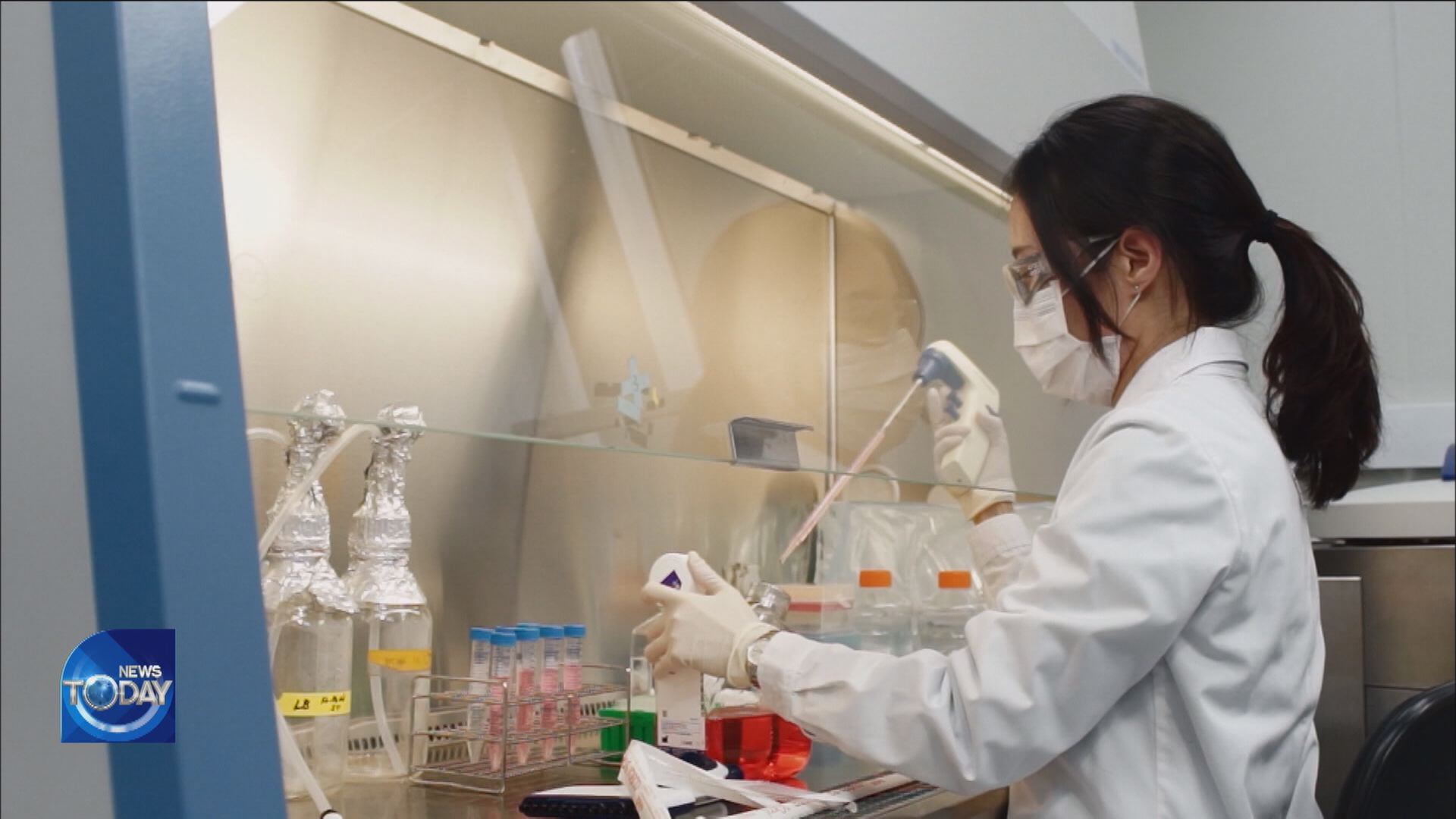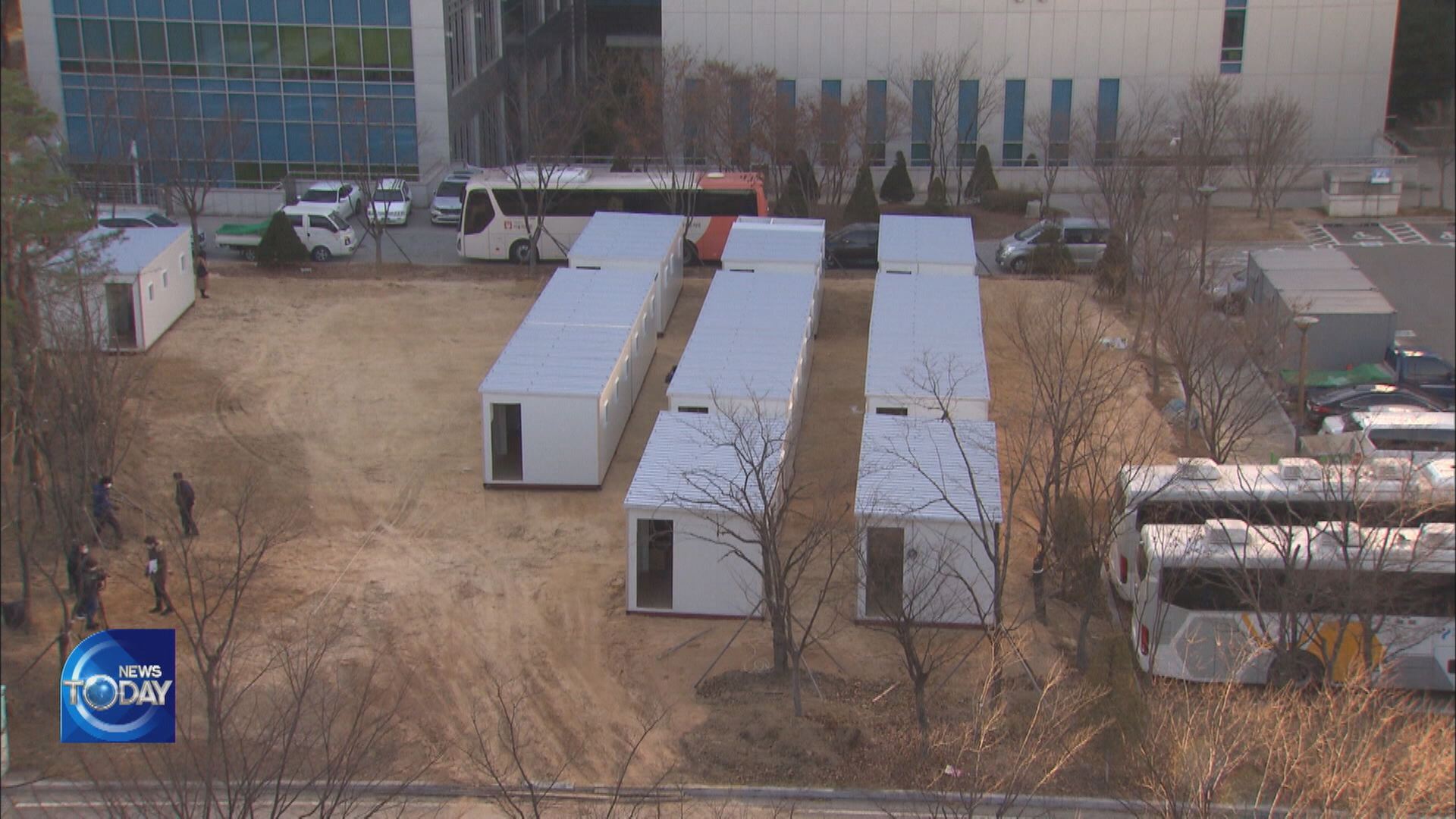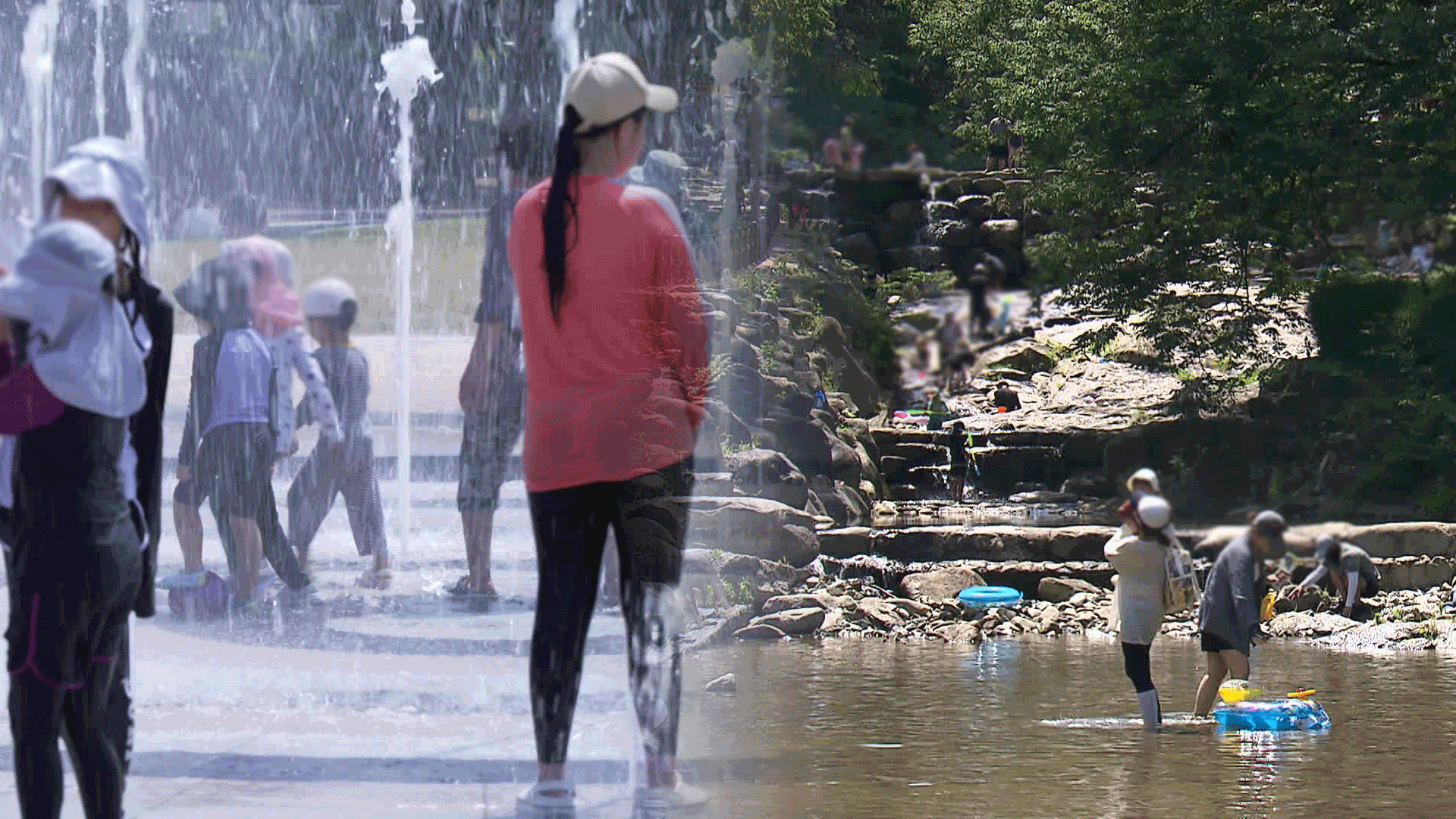PLANS ON COVID-19 VACCINATIONS
입력 2020.12.09 (15:17)
수정 2020.12.09 (16:46)
읽어주기 기능은 크롬기반의
브라우저에서만 사용하실 수 있습니다.
[Anchor Lead]
Yesterday we reported that the Korean government secured enough COVID-19 vaccines for 44 million people. The plan is to import them by February or March of next year and start vaccinations in April at the earliest, after monitoring local transmissions and inoculation side effects observed overseas. We take a look at the government's plan (REPORT)
[Pkg]
The Korean government plans to start vaccinations after fully verifying the safety of the procured doses. Korea is being more cautious toward COVID-19 vaccination because the pandemic is relatively under control here compared to Europe or the US, where a vaccine is virtually the only option for containing the virus.
[Soundbite] PARK NEUNG-HOO(HEALTH MINISTER) : "We need to closely monitor the side effects that may occur 2 to 3 months after the inoculation overseas before vaccinating the Korean people."
The mRNA vaccine developed by Pfizer and Moderna has never been commercialized before. Its safety is not completely ensured since the vaccine’s clinical trial was conducted on only 30,000 people. Moreover, no clinical trials were done on children or the elderly and other vulnerable groups. Therefore, Korea has decided to design a vaccination plan after monitoring the efficacy and side effects observed in at least one million inoculated people.
[Soundbite] SONG DAE-SUB(PROF., KOREA UNIV.) : "There is concern over safety. That is why we need to see the vaccination data from as many people as possible before using the vaccine in Korea."
Procurement of enough vaccines also cannot be guaranteed as of now. Pfizer and Moderna's vaccine output is still limited and doses that are available are likely to be used for American and European citizens first. Meanwhile, some experts say that vaccines, when made available in Korea, should be given promptly to those at risk. There is already a shortage of intensive care facilities and the country needs to brace for a continued spread of COVID-19 throughout the winter.
[Soundbite] CHOI WON-SUK(PROF., KOREA UNIV. ANSAN HOSPITAL) : "Vaccination may start without much delay after procurement if the benefit outweighs the risk in vulnerable groups."
Vaccinations are likely to start earlier than planned if the COVID-19 situation in Korea worsens, but at the moment the start date looks to be some time in April. Even with expedited reviews, it takes 40 days for the vaccine to be approved for nationwide use.
Yesterday we reported that the Korean government secured enough COVID-19 vaccines for 44 million people. The plan is to import them by February or March of next year and start vaccinations in April at the earliest, after monitoring local transmissions and inoculation side effects observed overseas. We take a look at the government's plan (REPORT)
[Pkg]
The Korean government plans to start vaccinations after fully verifying the safety of the procured doses. Korea is being more cautious toward COVID-19 vaccination because the pandemic is relatively under control here compared to Europe or the US, where a vaccine is virtually the only option for containing the virus.
[Soundbite] PARK NEUNG-HOO(HEALTH MINISTER) : "We need to closely monitor the side effects that may occur 2 to 3 months after the inoculation overseas before vaccinating the Korean people."
The mRNA vaccine developed by Pfizer and Moderna has never been commercialized before. Its safety is not completely ensured since the vaccine’s clinical trial was conducted on only 30,000 people. Moreover, no clinical trials were done on children or the elderly and other vulnerable groups. Therefore, Korea has decided to design a vaccination plan after monitoring the efficacy and side effects observed in at least one million inoculated people.
[Soundbite] SONG DAE-SUB(PROF., KOREA UNIV.) : "There is concern over safety. That is why we need to see the vaccination data from as many people as possible before using the vaccine in Korea."
Procurement of enough vaccines also cannot be guaranteed as of now. Pfizer and Moderna's vaccine output is still limited and doses that are available are likely to be used for American and European citizens first. Meanwhile, some experts say that vaccines, when made available in Korea, should be given promptly to those at risk. There is already a shortage of intensive care facilities and the country needs to brace for a continued spread of COVID-19 throughout the winter.
[Soundbite] CHOI WON-SUK(PROF., KOREA UNIV. ANSAN HOSPITAL) : "Vaccination may start without much delay after procurement if the benefit outweighs the risk in vulnerable groups."
Vaccinations are likely to start earlier than planned if the COVID-19 situation in Korea worsens, but at the moment the start date looks to be some time in April. Even with expedited reviews, it takes 40 days for the vaccine to be approved for nationwide use.
■ 제보하기
▷ 카카오톡 : 'KBS제보' 검색, 채널 추가
▷ 전화 : 02-781-1234, 4444
▷ 이메일 : kbs1234@kbs.co.kr
▷ 유튜브, 네이버, 카카오에서도 KBS뉴스를 구독해주세요!
- PLANS ON COVID-19 VACCINATIONS
-
- 입력 2020-12-09 15:17:58
- 수정2020-12-09 16:46:20

[Anchor Lead]
Yesterday we reported that the Korean government secured enough COVID-19 vaccines for 44 million people. The plan is to import them by February or March of next year and start vaccinations in April at the earliest, after monitoring local transmissions and inoculation side effects observed overseas. We take a look at the government's plan (REPORT)
[Pkg]
The Korean government plans to start vaccinations after fully verifying the safety of the procured doses. Korea is being more cautious toward COVID-19 vaccination because the pandemic is relatively under control here compared to Europe or the US, where a vaccine is virtually the only option for containing the virus.
[Soundbite] PARK NEUNG-HOO(HEALTH MINISTER) : "We need to closely monitor the side effects that may occur 2 to 3 months after the inoculation overseas before vaccinating the Korean people."
The mRNA vaccine developed by Pfizer and Moderna has never been commercialized before. Its safety is not completely ensured since the vaccine’s clinical trial was conducted on only 30,000 people. Moreover, no clinical trials were done on children or the elderly and other vulnerable groups. Therefore, Korea has decided to design a vaccination plan after monitoring the efficacy and side effects observed in at least one million inoculated people.
[Soundbite] SONG DAE-SUB(PROF., KOREA UNIV.) : "There is concern over safety. That is why we need to see the vaccination data from as many people as possible before using the vaccine in Korea."
Procurement of enough vaccines also cannot be guaranteed as of now. Pfizer and Moderna's vaccine output is still limited and doses that are available are likely to be used for American and European citizens first. Meanwhile, some experts say that vaccines, when made available in Korea, should be given promptly to those at risk. There is already a shortage of intensive care facilities and the country needs to brace for a continued spread of COVID-19 throughout the winter.
[Soundbite] CHOI WON-SUK(PROF., KOREA UNIV. ANSAN HOSPITAL) : "Vaccination may start without much delay after procurement if the benefit outweighs the risk in vulnerable groups."
Vaccinations are likely to start earlier than planned if the COVID-19 situation in Korea worsens, but at the moment the start date looks to be some time in April. Even with expedited reviews, it takes 40 days for the vaccine to be approved for nationwide use.
Yesterday we reported that the Korean government secured enough COVID-19 vaccines for 44 million people. The plan is to import them by February or March of next year and start vaccinations in April at the earliest, after monitoring local transmissions and inoculation side effects observed overseas. We take a look at the government's plan (REPORT)
[Pkg]
The Korean government plans to start vaccinations after fully verifying the safety of the procured doses. Korea is being more cautious toward COVID-19 vaccination because the pandemic is relatively under control here compared to Europe or the US, where a vaccine is virtually the only option for containing the virus.
[Soundbite] PARK NEUNG-HOO(HEALTH MINISTER) : "We need to closely monitor the side effects that may occur 2 to 3 months after the inoculation overseas before vaccinating the Korean people."
The mRNA vaccine developed by Pfizer and Moderna has never been commercialized before. Its safety is not completely ensured since the vaccine’s clinical trial was conducted on only 30,000 people. Moreover, no clinical trials were done on children or the elderly and other vulnerable groups. Therefore, Korea has decided to design a vaccination plan after monitoring the efficacy and side effects observed in at least one million inoculated people.
[Soundbite] SONG DAE-SUB(PROF., KOREA UNIV.) : "There is concern over safety. That is why we need to see the vaccination data from as many people as possible before using the vaccine in Korea."
Procurement of enough vaccines also cannot be guaranteed as of now. Pfizer and Moderna's vaccine output is still limited and doses that are available are likely to be used for American and European citizens first. Meanwhile, some experts say that vaccines, when made available in Korea, should be given promptly to those at risk. There is already a shortage of intensive care facilities and the country needs to brace for a continued spread of COVID-19 throughout the winter.
[Soundbite] CHOI WON-SUK(PROF., KOREA UNIV. ANSAN HOSPITAL) : "Vaccination may start without much delay after procurement if the benefit outweighs the risk in vulnerable groups."
Vaccinations are likely to start earlier than planned if the COVID-19 situation in Korea worsens, but at the moment the start date looks to be some time in April. Even with expedited reviews, it takes 40 days for the vaccine to be approved for nationwide use.
이 기사가 좋으셨다면
-
좋아요
0
-
응원해요
0
-
후속 원해요
0










![[HEADLINE]](https://news.kbs.co.kr/data/news/title_image/newsmp4/news_today/2020/12/09/10_5067310.jpeg)






이 기사에 대한 의견을 남겨주세요.